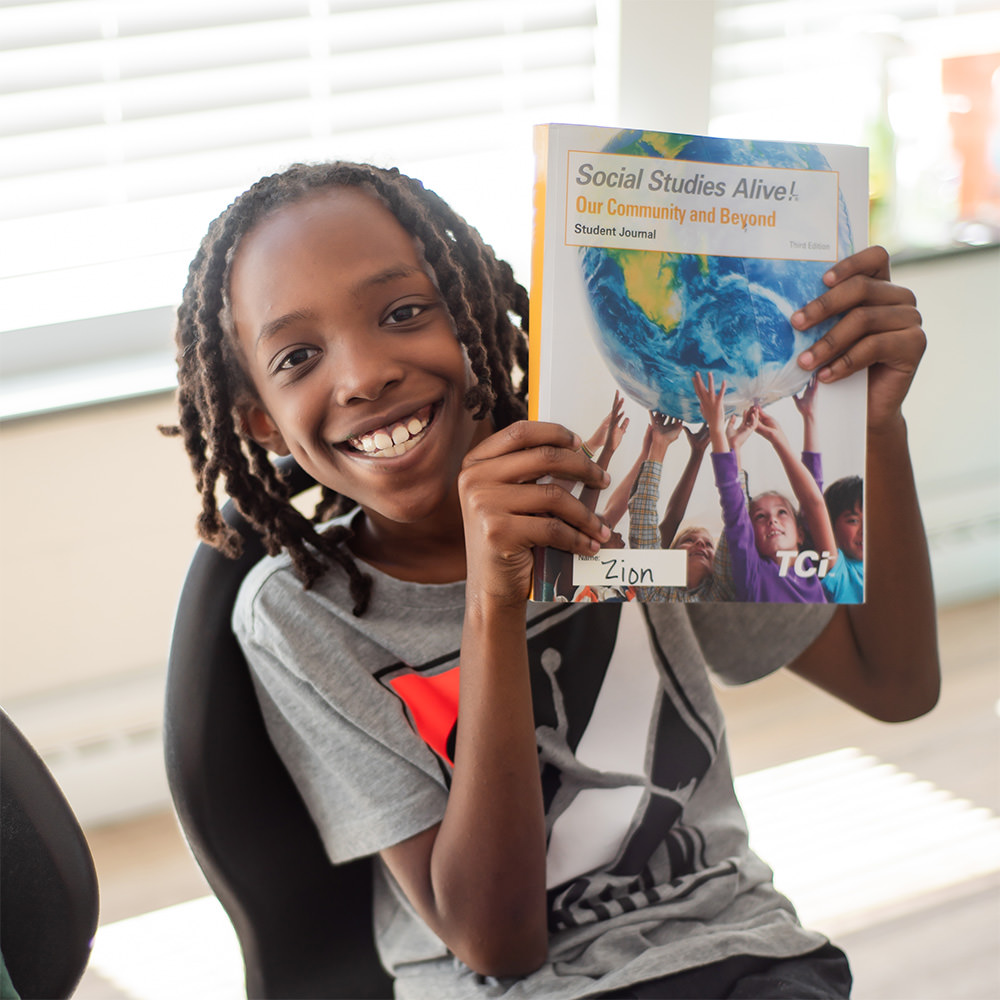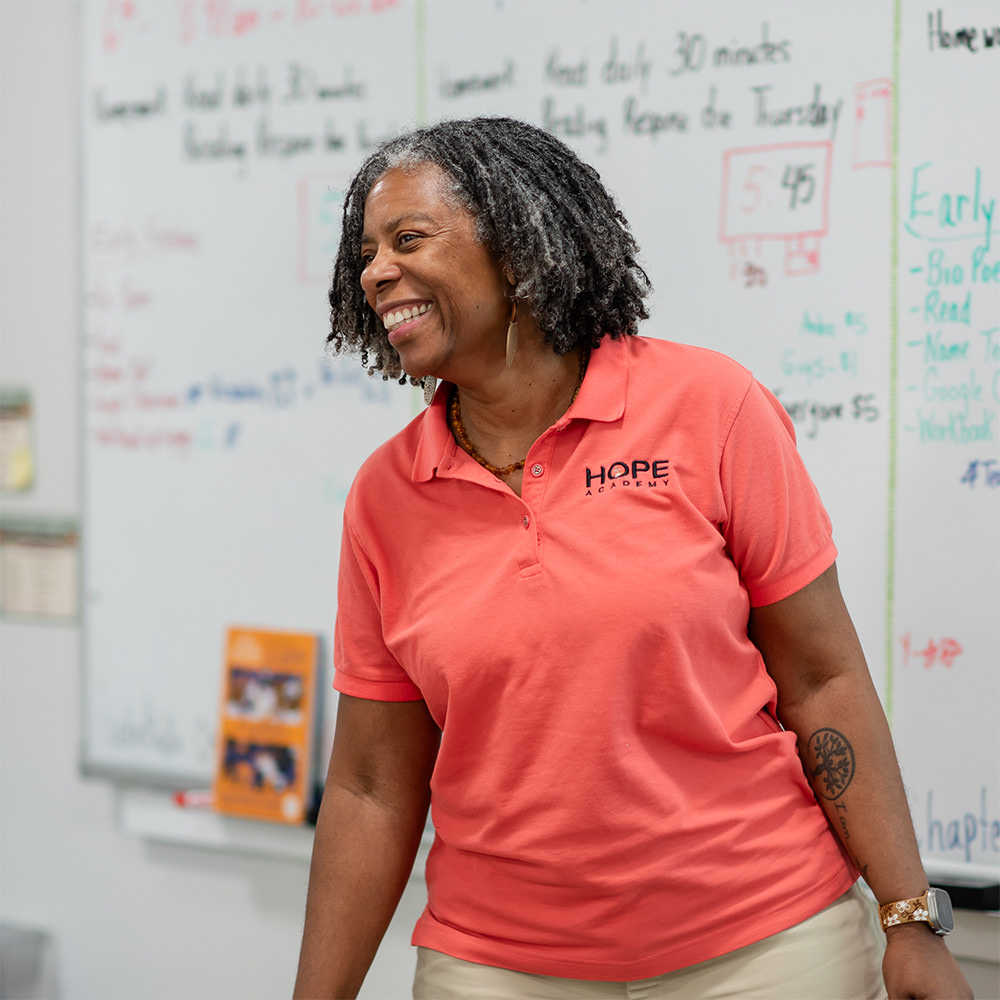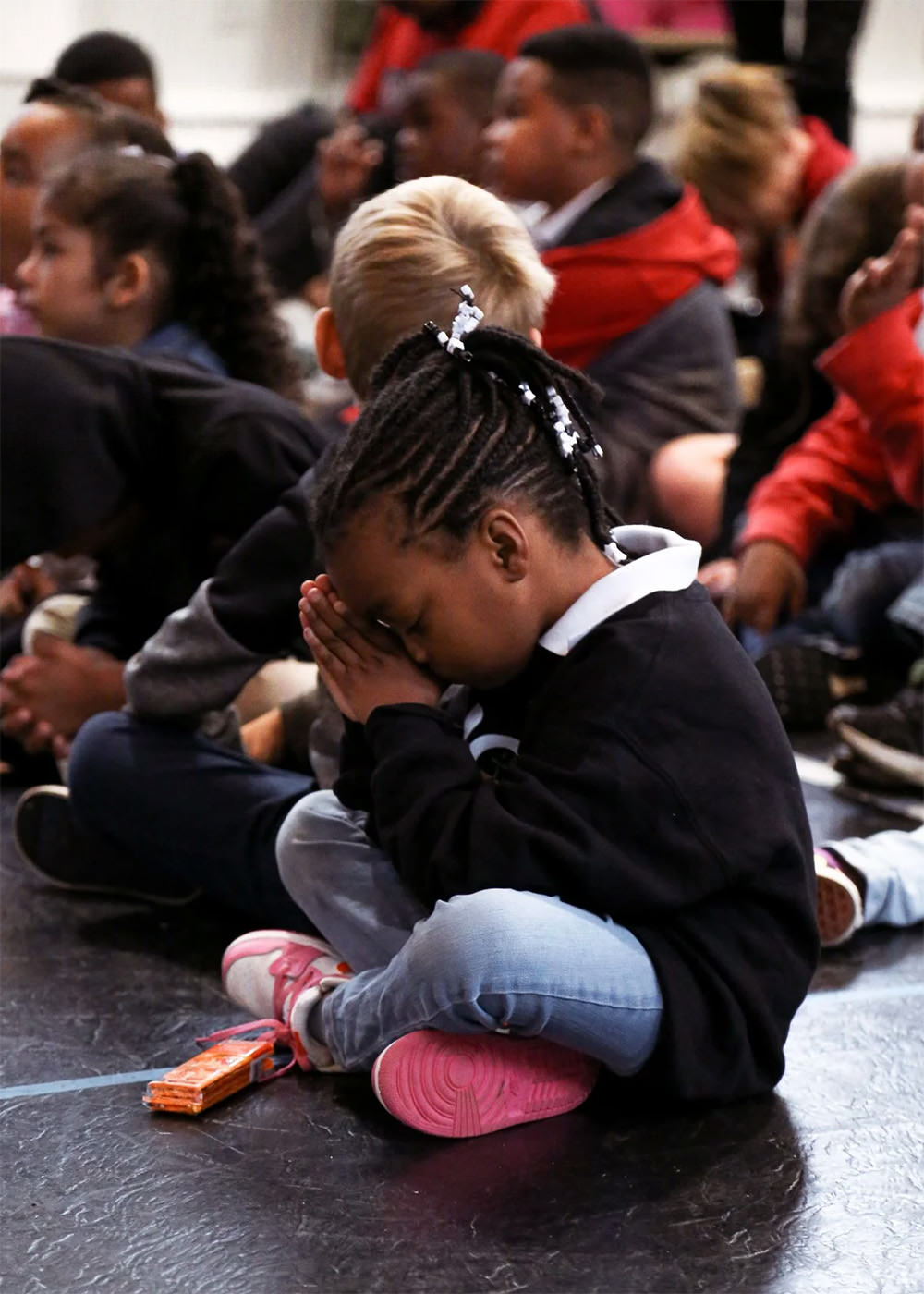Academics
Hope Academy GSO is a Christ-centered community school providing students and families with a transformative education. Our curriculum helps students master foundational skills and discover the joy of learning through hands-on activities and immersion in a wide variety of disciplines. Alongside grade-level curriculum for reading, math, and the sciences, all students learn about their identity in Christ and how they are uniquely equipped by God to fulfill their roles in His story.
Kindergarten
Our kindergarten teachers use expeditionary learning (EL) methods to weave together play, joy, and learning. Through creative play, children develop critical thinking skills, build expressive language, increase their social skills, and learn how to manage their emotions. Classes include outdoor learning and field trips to help students learn about God’s creation and the ways they are connected with their community. Our Kindergarten students receive phonics instruction from two state-certified teachers, maintaining foundational literacy instruction in a 1:9 student to teacher ratio.
Elementary
Elementary age students continue exploring and connecting with their community through interactive and play-focused learning methods. Hands-on projects and outdoor activities help build on core concepts and teach character development. First through 5th grade students also receive an extra 50 minutes of math enrichment and 50 minutes of reading and writing each day. Social studies classes beginning in the 3rd grade use interactive play and simulations to bring concepts to life.
Middle School
Along with reading, writing, math, and social studies, students participate in hands-on science courses that teach critical thinking and the scientific method. Starting in the fifth grade, students participate in PE classes that teach the fundamentals of sports, fitness, and how to build habits for healthy, active lives. A diverse range of grade-level books and materials help students discover what they desire to learn and allow their curiosity to open up new and exciting questions and possibilities.
What we teach

Curriculum
We use a well-rounded, researched-based curriculum designed to educate, encourage, and equip every student.
- El Education (EL) – Our Language Arts curriculum uses engaging, content-rich instruction to teach and assess all reading, writing, speaking, and listening standards at every grade level.
- Eureka Math2 – Students learn math through a balanced approach that builds strong skills, deep understanding, and the ability to explain their thinking.
- Lexia – Personalized phonics and reading support tailored to each student’s skill level.
- Zearn – Targeted math practice and enrichment that supports and extends classroom learning.
- Social Studies (TCI) & Science – Provides students with opportunities to think critically and understand the complexities of the world around them.
- SPARK Physical Education (5-8th Grade) – A research-backed program promoting lifelong fitness and healthy habits.
- Outdoor Education (K-4th Grade) – Rooted in best practices of nature-based early childhood education, this teacher-designed curriculum fosters hands-on learning, curiosity, and connection to the natural world.

Highly Trained Teachers
Our highly-trained teachers are committed to continual growth and excellence. Each educator collaborates closely with our Director of Learning to create a personalized Professional Development Plan. We believe it is important for our teachers to be lifelong learners.
Our teachers are equipped with the most effective research based strategies so every student receives the best possible education.

Assessments
We believe every child is created by God with unique gifts and the ability to grow. Assessments help support, guide, and celebrate each child’s growth.
- Multiple Measures – We use many avenues to measure a students’ academic growth, which gives a full picture of learning.
- NWEA MAP Growth – Students Participate in MAP benchmarks three times per year (Fall, Winter, and Spring)
- Curricular Assessments – Teachers use ongoing assessments within our phonics and math curriculum to guide instruction every day.
Assessment is not about pressure. It is about understanding your child so we can help them grow.

Spiritual Life
Spiritual Life at Hope is intentionally woven into the daily rhythm of learning.
In lower elementary, we use The Jesus Storybook Bible to help students encounter Scripture as one unified story that points to Jesus, building a foundation of wonder, trust, and belonging.
In grades 3–8, we utilize The Bible Project to invite deeper thinking, visual learning, and age-appropriate engagement with the Bible’s themes, structure, and big ideas.
Daily Discipleship takes place through KIDStory teaching that is relational, interactive, and centered on God’s Word, helping students connect faith to real life. Each Monday, chapel grounds our community in foundational biblical truths that shape how we learn, love, and live throughout the week.
Guided by Teaching for Transformation, all of these practices are connected to classroom learning, helping students see God’s story at work in every subject and inviting them to live as active participants in His redemptive work, both now and in the future.
